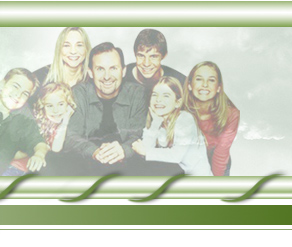



October '07 Bulletin
Meeting held: 10/17
Guest Speaker:
Patricia Bass MSW, CSW
Clinical Social Worker/ Psychotherapist
Food Allergy Topics:
The social and psychological impact of severe food allergies and other allergic diseases (like EE) on our children as well as us parents, caregivers & siblings.
Share your story
Open forum for questions and answers
Agenda
1) How do you get over the overwhelming feeling when your baby is first diagnosed with an allergic disease?
Patricia talked about Feelings. Our feelings are all natural and normal. There are levels of acceptance.
She explained 4 phases that are ongoing and creates anxiousness. She said it's important to recognize the phases.
1st Stage: Shock which can consist of disbelief and grief.
2nd Stage: Anger which involves depression/rage. It is an Energy.
3rd Stage: Bargaining - for example when you blame yourself.
4th Stage: Acceptance.
Try to use your energy (from Stage 2) into something positive like volunteering to help PAK raise awareness by educating others and keeping kids safe.
2) How to deal with ignorant comments (holidays coming..)
Attendees did some role playing to show a parent in distress vs. and insensitive person (ie. a relative/doctor). This person is uneducated about food allergies and says ignorant comments to make the problem go away.
Set up a special appointment with your child's doctor to ask questions specific to food allergies. At school, same thing to discuss just the food allergy so the teacher cannot change the subject. With friends at parties, tell your child not to trust anyone. Always bring your own food. Better to be safe and cautious than take the chance of a reaction.
3) How to help your child socially when so much revolves around food
Take the time to make their special food something other kids will envy and your child will be so proud of.
4) How to share responsibility with your spouse
Patricia asked the husbands in the group their views on whose role it is to be responsible for the anaphylactic child's care. She said sometimes there can be issues of wanting to be in control and by placing one spouse in charge it is their way of making it all go away. It's a balancing act that you both need to be involved and on the same page.
5) How to keep your emotions in tact when your child is having a reaction
Try not to panic. Check vitals. Suppress your breakdown once your child has received the proper care.
6) How to manage when you have one child with FA and others without?
You want the sibling(s) to be included in the care of the FA child. Have special outings with the children who do not have the food allergies so they don't resent you later in life (as long as it's safe for your FA child when you get home). Every family is different and making it a family affair of avoidance is okay too. You can't mask over the situation in other words. Everyone's situation is different.
7) At what age and what language do we use to explain to our kids a food can kill them?
Patricia discussed how it is good to have open discussions in front of the youngsters so they learn. Let them know they are different and that's okay. Keep it positive and in an accepting way. It's okay to let them cry about it. It is the shut down child you worry about. Showing emotion is good. Guilt is fine. Let your emotions out too.
Age Development (Emotionally)
Ages 6 or less is an Egocentric Age emotionally. Everything happens because of them. Brains are wired that way. No interactive conversation. Use the terms "Good" and "Bad". Discuss allergies and situations by drawing social stories to help guide them to use their words.
Page 1 Draw everyone in the family as happy
Page 2 Show 'Abby' makes a mistake. Eats the food she is anaphylactic to.
Page 3 Show results (hives, belly hurts.. and feelings of sadness).
Page 4 End the story with this is not going to happen to you. Show a happy face. Don't scare them.
Ages 6 through 10 Develop Relationships. Build self confidence. Interactive conversations. Stay at the Good and Bad term stage until they ask about death. Then tell them the truth. That they can die from a severe anaphylactic reaction. Ask them how they feel about that. Always be empathetic and go down to their level of understanding. If they have a fear of the epinephrine needle hurting, you can always say "I don't think so".
Teens - Friends are the center of their world.
8) How to get over the fear when your child is in someone else's care (school/daycare/neighbor)?
You aren't supposed to get over the fear. You are your child's best advocate. This is a disability because it is life threatening. You can always contact the Long Island Advocacy (#234-0467) if you are in need of counsel. Usually there is no fee unless the lawyer attends a school meeting.
Host lots of play dates at your home where you know it's safe or join PAK's Weekly play group for food allergic kids and their families. Use your judgement when it comes to making decisions about their safety. Checks and balances.
9) What to do when your child blames themselves for a reaction (when they were in your care)?
Human nature. Accept it. Role model to your child that it's okay to make mistakes.
10) How to get out of the slump when you blame yourself for everything (your genes or something you fed them as an infant)?
Make time for you. Share the responsibilities with your spouse/family. Turn a negative into something positive. Find the humor in life.
Final note : Teach your child that the only place you get unconditional love is from Mommy and Daddy!
Does your child have severe food allergies?
You've come to the right place.
Patricia Bass takes insurance and has openings. She is located in Port Jefferson Station.
(631) 928-6565